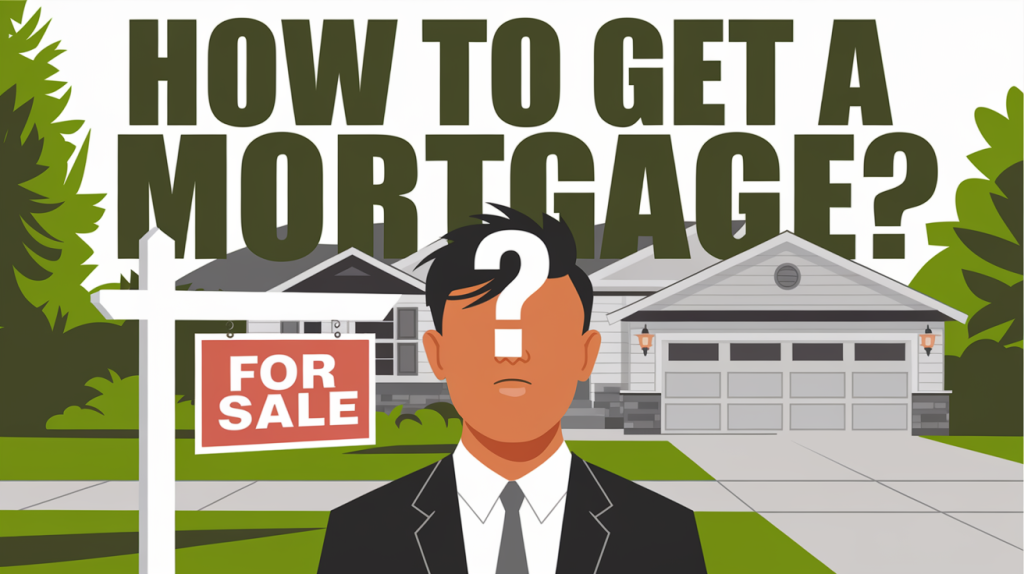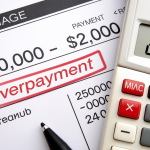How to Get a Mortgage
Getting a mortgage is how most people buy a home. A mortgage is a loan you take out to pay for a house and you pay it back over time with interest. If you’re new to this, the process can feel confusing. But don’t worry, we’ll break it down step by step so you know exactly what to do.
Step 1: Check Your Credit Score
Your credit score is like a report card for how well you handle money. Lenders use it to decide if they’ll give you a mortgage and what interest rate you’ll pay. Here’s how to prepare:
- What’s a good score? Most lenders want a credit score of 620 or higher. The higher your score, the better your loan terms.
- Check for free: Use websites like Credit Karma or AnnualCreditReport.com to see your score.
- Fix mistakes: If your report has errors (like wrong late payments), contact the credit bureau to fix them.
Step 2: Save Money for a Down Payment
A down payment is the money you pay upfront when buying a house, and the rest is paid through a mortgage. The amount you need usually ranges from 3% to 20% of the home’s price. For example, if the house costs $300,000, your down payment could be between $9,000 and $60,000. If you’re a first-time buyer, programs like FHA loans allow you to pay as little as 3.5% down. To save for your down payment, try cutting unnecessary expenses, like eating out, and use apps like Digit to save money automatically.
Step 3: Figure Out Your Budget
Before house hunting, know what you can afford. Lenders look at two numbers:
- Debt-to-Income Ratio (DTI): Your monthly debts (like car loans) divided by your income. Most lenders want this under 43%.
- Monthly Payment: Include mortgage payments, property taxes, insurance, and utilities.
Use online calculators (like Zillow’s) to estimate costs.
Step 4: Choose the Right Mortgage
There are many types of mortgages. Here are the most common:
- Fixed-Rate Mortgage: Your interest rate stays the same forever. Good if you’ll stay in the home long-term.
- Adjustable-Rate Mortgage (ARM): Starts with a low rate that changes over time. Risky but cheaper at first.
- FHA Loan: For first-time buyers with lower credit scores. Requires smaller down payments.
- VA Loan: For military members and veterans. Often requires 0% down.
Talk to a lender to pick the best option for you.

Step 5: Get Pre-Approved
A pre-approval is a letter from a lender that tells you how much money they are willing to lend you for a home. This letter shows sellers that you are serious about buying. To get pre-approved, you’ll need to provide documents like pay stubs, tax returns and bank statements. It’s also a good idea to shop around and compare offers from at least three different lenders to find the lowest interest rate.
Step 6: Find a Home and Make an Offer
Work with a real estate agent to find houses in your budget. When you find “the one,” your agent will help you make an offer. If the seller accepts, you’ll sign a contract and pay “earnest money” (a deposit to hold the house).
Step 7: Apply for the Mortgage
Now it’s time to officially apply for the loan. You’ll need:
- Proof of income (pay stubs, W-2 forms)
- Bank statements
- Tax returns (last 2 years)
- ID (driver’s license, passport)
The lender will review everything and order a home appraisal (to make sure the house is worth the price).
Step 8: Underwriting
This is when the lender double-checks all your info. They might ask for more documents, like a letter explaining a large bank deposit. Be ready to respond quickly!
Step 9: Close on the House
If approved, you’ll sign a ton of paperwork at a meeting called “closing.” You’ll also pay closing costs (about 2%–5% of the loan amount). After that, you get the keys.
Step 10: Start Making Payments
Your first mortgage payment is due a month after closing. Set up automatic payments to avoid missing deadlines.
Tips for Success
- Avoid big purchases (like a car) before closing, it can hurt your loan approval.
- Keep your job stable. Lenders check your employment status up until closing.
- Ask questions. If you don’t understand something, your lender or agent should explain it.
FAQs
What credit score do I need to get a mortgage?
Most lenders require at least 620, but some FHA loans accept scores as low as 580.
Can I get a mortgage with student loans?
Yes, but your monthly student loan payment will affect your debt-to-income ratio.
How long does it take to get a mortgage?
Usually 30–45 days, but delays can happen if there are issues with paperwork or the appraisal.


